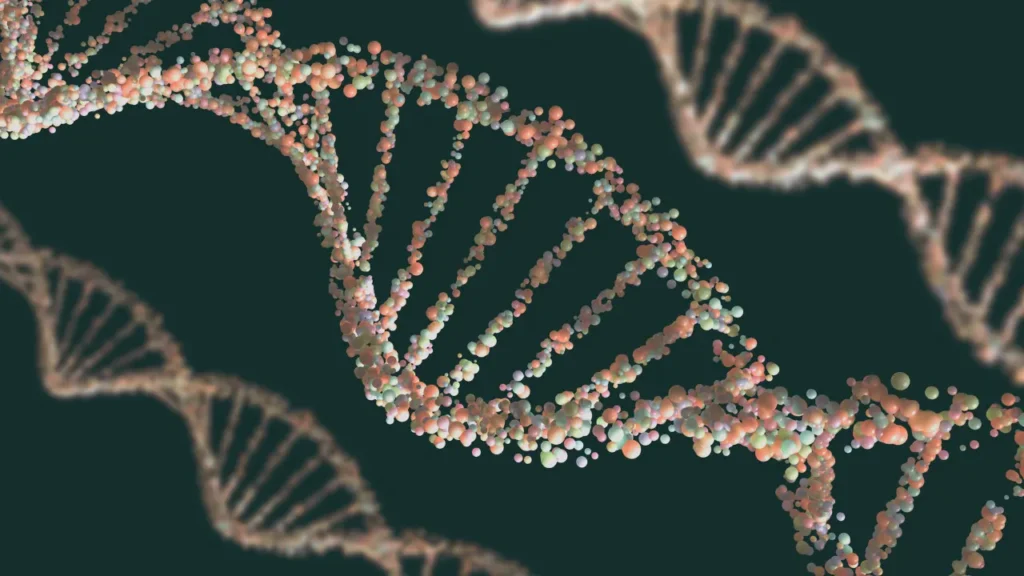Watercress (nasturtium officinale) is a perennial aquatic plant native to Europe and Asia that is now widely grown worldwide. It is related to mustard, radish, and arugula and belongs to the brassicaceae family. Watercress is known for its peppery flavor and high vitamin content, and has been used as a food source and medicinal herb for ages. The purpose of this article is to provide a thorough overview of the nature of watercress, its health benefits, recommended dosage, side effects, potential substance interactions, and safe consumption.
You May Also Like:
Nordic Naturals Omega-3 Phospholipids: Evaluation of a Leading Brain Health Product
Build Bright Brains with Omega-3s: The 7 Powerful Benefits for Brain Development in Kids
Watercress: Benefits, Dosage, Side Effects, Drug Interactions, And Other Important Information is an original (NootropicsPlanet) article.
Nature of Watercress
Watercress is an aquatic plant with small, spherical leaves and hollow stems. It thrives in slow-moving, shallow water sources such as streams, springs, and rivers. Its peppery flavor makes its leaves a favorite addition to salads, sandwiches, and soups. Watercress is extremely nutritious, with high levels of vitamins and minerals, as well as phytochemicals that contribute to its health-promoting characteristics.
Health Benefits of Watercress
Watercress is high in vitamins and minerals such as A, C, and K, as well as calcium, iron, and potassium. It also includes a lot of phytochemicals like glucosinolates, flavonoids, and carotenoids, which have been linked to a lot of health benefits:
• Antioxidant Properties: Watercress is high in antioxidants, which help protect cells from free radical damage. Watercress contains antioxidants such as vitamin C, carotenoids, and flavonoids. These chemicals neutralize free radicals, lowering oxidative stress and perhaps lowering the risk of chronic diseases including cancer and heart disease.
• Anti-inflammatory Properties: Watercress includes anti-inflammatory chemicals such as isothiocyanates generated from glucosinolates. These substances can help reduce inflammation in the body, which is linked to a variety of chronic disorders.
• Cancer Prevention: Watercress contains glucosinolates, which when ingested are transformed into isothiocyanates. In laboratory research, isothiocyanates have been demonstrated to decrease cancer cell growth and trigger apoptosis (cell death). These substances can prevent various cancers, including lung, colorectal, and breast cancer.
• Cardiovascular Health: Due to its high nitrate content, watercress can enhance cardiovascular health. In the body, nitrates are turned into nitric oxide, which helps widen blood vessels and enhance blood flow. This can help lower blood pressure and lower the chance of developing heart disease.
• Bone Health: Watercress is a good source of vitamin K, which is important for bone health. Adequate vitamin K intake promotes bone density and lowers the incidence of fractures.

Chemistry of Watercress
Watercress’s health-promoting effects can be linked to its unique chemical composition. It contains a variety of bio-active chemicals, such as:
• Glucosinolates: Watercress contains a high concentration of glucosinolates, which are sulfur-containing chemicals found in cruciferous vegetables. When glucosinolates are ingested, they break down into isothiocyanates, which are responsible for many of the plant’s health advantages.
Watercress includes flavonoids such as quercetin and kaempferol, which have antioxidant and anti-inflammatory properties.
• Carotenoids: Watercress contains carotenoids such as beta-carotene, lutein, and zeaxanthin, which are vital for eye health and have antioxidant properties.
• Vitamins and Minerals: Watercress is high in critical vitamins and minerals including A, C, and K, as well as calcium, iron, and potassium.
Physiological Properties of Watercress
Watercress contains bio-active substances that affect the body through a number of physiological pathways, including:
• Antioxidant Properties: Watercress contains flavonoids and carotenoids, which have antioxidant properties that help neutralize free radicals, reduce oxidative stress, and can lower the risk of chronic diseases including cancer and cardiovascular disease.
• Anti-inflammatory Properties: Isothiocyanates made from the glucosinolates in watercress can help lessen inflammation in the body by obstructing pro-inflammatory pathways including the nuclear factor-kappa B (NF-B) pathway.
• Cancer Prevention: It has been demonstrated that the isothiocyanates in watercress stimulate Phase II detoxification enzymes, which can prevent DNA damage brought on by carcinogens. Isothiocyanates can also encourage apoptosis (cell death) in cancer cells and inhibit cancer cell proliferation in healthy cells.
• Cardiovascular Health: Nitric oxide, which helps widen blood vessels and enhance blood flow, can be produced in the body from watercress’s high nitrate content. The risk of heart disease can be decreased and blood pressure can be lowered as a result.
• Bone Health: The high vitamin K content of watercress is essential for bone health because it activates proteins involved in calcium homeostasis and bone mineralization. The incidence of fractures is decreased and bone density is maintained with enough vitamin K intake.

Optimal Dosage of Watercress
Watercress is normally eaten as a food rather than a supplement, so there isn’t a set recommended dosage for ingestion. A balanced diet that includes watercress in salads, sandwiches, or soups can help individuals take advantage of its wealth of nutrients and wellness-enhancing properties. The health advantages of watercress may require just a few servings each week.
Side Effects of Watercress
When included in a balanced diet and consumed in moderation, watercress is typically regarded as safe for ingestion. However, if you drink a lot of watercress, you could have gastrointestinal symptoms including flatulence, diarrhea, or stomach discomfort. Reducing the amount of watercress consumption can alleviate these negative effects, which are often minor.
In addition, watercress has a lot of vitamin K, which is important for blood clotting. Watercress can interfere with the effectiveness of anticoagulant drugs, such as warfarin, so if you are taking them, you should be cautious about how much watercress you consume. If you are taking anticoagulant therapy, speak with your medical specialist before making any significant dietary changes.
Potential Substance Interactions with Watercress
The following chemicals and drugs may interact with watercress:
• Anticoagulants: As was already noted, watercress contains a lot of vitamin K, which can interact with anticoagulants like warfarin and could lessen its efficacy. People who are on anticoagulant medication should watch how much watercress they consume and talk to their doctor about it.
• Thyroid Medications: Goitrogens, which are substances that might obstruct the formation of thyroid hormones, are present in watercress. While the risk is minimal if watercress is consumed in moderation, if you have thyroid conditions or are taking thyroid drugs, you should exercise caution and speak with a doctor if you have any questions.

Responsible Uses of Watercress
By incorporating watercress into a balanced diet and being aware of potential side effects and interactions, watercress can be used in a responsible manner. Take into account the following advice to benefit from watercress’s health advantages:
• Select watercress that is young, lively, and free of wilting or yellowing. Before eating, properly wash the watercress to get rid of any impurities.
• To take advantage of watercress’ high nutrient benefits, add it to a range of foods such salads, sandwiches, soups, and stir-fries.
• Be aware of any drug interactions and speak with a healthcare provider if you have any questions.
Watercress:
Conclusion
Watercress can be very beneficial to your overall health and wellness. However, it is important to speak with your doctor before consuming watercress, because individual responses may vary. Watercress comes with a wealth of health benefits, but if you have any thyroid disorders, you should exercise caution, as it can interact with certain thyroid medications. If you are interested in adding watercress to your diet to help with bone health and cardiovascular health, this natural product might be right for you.

References:
- Health benefits and bio-active compounds of watercress. Retrieved from: https://www.ncbi.nlm.nih.gov/pmc/articles/PMC5465813/
- Effects of dietary nitrates on blood pressure and cardiovascular health: A review. Retrieved from: https://www.ahajournals.org/doi/full/10.1161/hypertensionaha.117.099607
- The role of vitamin K in bone health and its implications for osteoporosis prevention. Retrieved from: https://www.ncbi.nlm.nih.gov/pmc/articles/PMC5726210/
- Watercress supplementation and its impact on exercise-induced oxidative stress: A randomized controlled trial. Retrieved from: https://pubmed.ncbi.nlm.nih.gov/24675168/
Important Note: The information contained in this article is for general informational purposes only, and should not be construed as health or medical advice, nor is it intended to diagnose, prevent, treat, or cure any disease or health condition. Before embarking on any diet, fitness regimen, or program of nutritional supplementation, it is advisable to consult your healthcare professional in order to determine its safety and probable efficacy in terms of your individual state of health.
Regarding Nutritional Supplements Or Other Non-Prescription Health Products: If any nutritional supplements or other non-prescription health products are mentioned in the foregoing article, any claims or statements made about them have not been evaluated by the U.S. Food and Drug Administration, and such nutritional supplements or other health products are not intended to diagnose, treat, cure, or prevent any disease.


